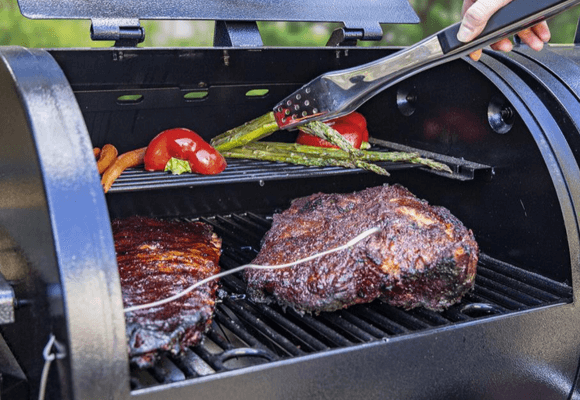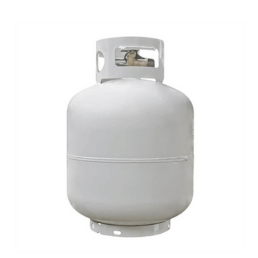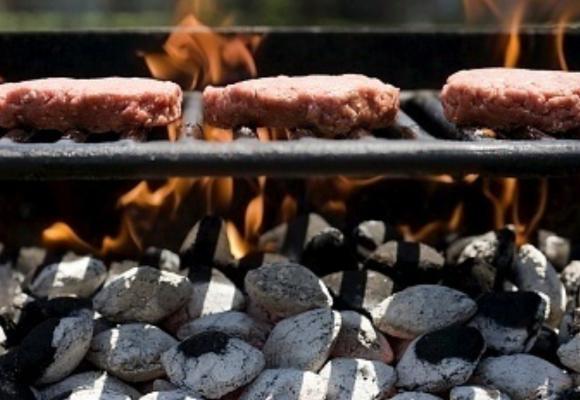When it comes to outdoor cooking, enthusiasts often debate the merits of different types of grills. Among the myriad of options, gas grills are known for their convenience and ease of use, attracting a significant following. In this context, Traeger, a brand synonymous with innovation and quality in the world of grilling, often comes into the spotlight. Renowned for their wood pellet grills that have revolutionized outdoor cooking, Traeger has carved a niche for itself. But this leads to a compelling question that many grilling aficionados ponder: Does Traeger, a brand celebrated for its wood pellet technology, offer a gas grill option in its product lineup? In this article, we explore the product range of Traeger, exploring their offerings and answering the burning question of whether a gas grill figures in their esteemed range.
Does Traeger Make a Gas Grill?
The straightforward answer to this pressing question is no; Traeger does not manufacture gas grills. Known for their dedication to pellet grills, Traeger has stayed true to this identity. However, it’s interesting to note their model named FLATROCK, which strays slightly from their traditional product line. The FLATROCK operates exclusively on liquid propane, diverging from the pellet-based system that Traeger is renowned for. It’s important to clarify that this model is designed specifically for use with liquid propane and is not compatible with natural gas. This distinction is crucial for enthusiasts who might be considering the FLATROCK model, as it requires a gas cylinder type fuel source, aligning more with conventional gas grills in terms of fuel but not in functionality or design philosophy.

Are Pellet Grills Better Than Gas Grills?
When it comes to choosing between pellet and gas grills, the decision often boils down to personal preference and cooking style. Pellet grills, revered for their ability to impart a rich, smoky flavor, cater to those who favor the traditional barbecue taste and enjoy the process of slow cooking. Gas grills, on the other hand, offer convenience and speed, appealing to grillers who prioritize ease and time efficiency. The debate between the two is not about superiority, but rather about which grill better aligns with your culinary needs and lifestyle.
Pellet Grills vs. Gas Grills: Flavor
One of the most significant differences between pellet and gas grills lies in the flavor profile they impart to the food. Pellet grills use wood pellets which naturally infuse smoked flavors into meats and vegetables. This feature is particularly appreciated by barbecue enthusiasts who seek that authentic, wood-fired taste. In contrast, gas grills use propane or natural gas, which provides a cleaner but less flavorful cooking experience. For those who prefer a smoky flavor, pellet grills have a clear advantage.

Pellet Grills vs. Gas Grills: Smoking
Smoking is an art, and pellet grills excel in this domain. They are specifically designed to maintain low and slow temperatures ideal for smoking, offering a more controlled and precise smoking experience. Gas grills can be used for smoking, but they require additional accessories like smoker boxes and often demand more skill to maintain the right smoking temperature. For dedicated smokers, pellet grills are often the go-to choice.
Pellet Grills vs. Gas Grills: Consistent Temperature
Consistent temperature control is crucial for successful grilling, and here, pellet grills shine. They are engineered to maintain a steady temperature over extended periods, which is vital for processes like smoking and slow roasting. Gas grills, while excellent for quick cooking and searing, can be more challenging to keep at a constant temperature, especially over longer cooking periods.
Pellet Grills vs. Gas Grills: Ease of Use
In terms of ease of use, gas grills generally take the lead. They heat up quickly, are straightforward to operate, and require less preparation and cleanup compared to pellet grills. Pellet grills, with their more complex mechanisms for feeding pellets and maintaining temperature, can have a steeper learning curve. However, for those who enjoy the process and nuances of grilling, this complexity might be part of the appeal.
How to Smoke on a Gas Grill
Smoking on a gas grill requires creativity and a bit of skill, as these grills are not inherently designed for smoking. To achieve that desired smoky flavor, you’ll need a smoker box or a makeshift foil packet filled with wood chips. Preheat the grill with the smoker box on the burners. Once it starts producing smoke, adjust the temperature to the desired level, usually low for traditional smoking. Place your food on the grill, away from direct heat (indirect cooking). The key is to maintain a consistent low temperature and to periodically check the wood chips, replenishing them as needed to continue producing smoke. This method transforms a gas grill into a makeshift smoker, allowing for a smoky flavor in meats and vegetables, albeit with more effort and attention compared to a dedicated smoker.

How Long Do Gas Grills Last?
The lifespan of a gas grill can vary significantly based on its construction quality, material, usage frequency, and maintenance. On average, a well-maintained gas grill can last between 5 to 15 years. Higher-end models made with durable materials like stainless steel tend to last longer, while entry-level grills might need replacement sooner. Regular cleaning, proper storage, and timely replacement of worn-out parts, like burners and grates, can extend a gas grill’s life. Additionally, using a grill cover can protect it from weather elements and prevent rusting. Investing in a quality grill and maintaining it properly can ensure that it remains a reliable tool for outdoor cooking for many years.
What Are the Pros and Cons of a Gas Grill?
Pros:
- Convenience: Gas grills heat up quickly and are ready to cook within minutes, making them ideal for busy lifestyles.
- Temperature Control: They offer precise and easy temperature adjustments, allowing for a range of cooking methods from searing to slow roasting.
- Cleanliness: Gas grills are cleaner to operate, producing less ash and residue compared to charcoal or pellet grills.
- Versatility: They are suitable for a wide variety of foods, from meats to vegetables, and can accommodate different cooking styles.
Cons:
- Flavor: Gas grills don’t impart the same smoky flavor as charcoal or pellet grills.
- Cost: They can be more expensive initially, especially higher-end models.
- Portability: Many gas grills are less portable due to their size and the need for a gas connection.
- Complexity: They can be more complex to maintain and repair, with more parts like burners and gas lines.
What Do You Need to Grill on a Gas Grill?
To grill on a gas grill effectively, you need several key items:
- Propane or Natural Gas Source: Ensure you have a full propane tank or a natural gas line connection.
- Grilling Tools: Long-handled tongs, a spatula, and a grill brush are essential for handling and maintaining the grill.
- Thermometer: A meat thermometer is crucial for ensuring food is cooked to the right temperature.
- Cookware: Depending on what you’re cooking, you might need items like a grill basket for vegetables or a cast-iron skillet for certain dishes.
- Cleaning Supplies: Keeping the grill clean is important, so have a grill brush and cleaning solutions ready.
- Safety Gear: Heat-resistant gloves and
a fire extinguisher should always be on hand for safety.
Lastly, don’t forget the ingredients for your meal. Marinate or season your meats and vegetables in advance. Having everything prepped and ready to go will make the grilling experience smoother and more enjoyable.
What Is the Difference Between Using a Smoker and Using a Gas Grill?
The primary difference between using a smoker and a gas grill lies in their cooking methods and the flavors they impart.
Smokers:
- Cooking Method: Smokers cook food slowly at low temperatures, using smoke from burning wood to impart flavor.
- Flavor: They are renowned for their ability to infuse deep, rich, smoky flavors into food.
- Versatility: Best suited for meats and dishes that benefit from slow cooking and smoking, like brisket or ribs.
- Temperature Control: Maintaining a consistent temperature is crucial in smokers and can be more challenging.
Gas Grills:
- Cooking Method: Gas grills cook food quickly at higher temperatures, using direct heat from gas flames.
- Flavor: They generally impart a less smoky flavor and are more about grilling than smoking.
- Versatility: Ideal for a wide range of foods, including quick-cooking meats, vegetables, and seafood.
- Temperature Control: Offer precise and easy temperature control, suitable for a variety of cooking styles.
Why Can’t Gas Grills Be Used on Some Decks and Apartments?
The prohibition of gas grills on certain decks and in apartments is primarily due to safety concerns. The main risks include:
- Fire Hazards: Gas grills represent a significant fire risk, especially in close quarters or wooden structures where a flare-up can quickly lead to a larger fire.
- Space Constraints: Many decks and apartment balconies lack the necessary space to safely operate a grill, as they require clearance from combustible materials.
- Gas Leaks: The possibility of gas leaks, which can be dangerous in enclosed or semi-enclosed spaces, is a significant concern.
- Local Regulations: Many local fire codes and building regulations restrict the use of open flames or specific types of grills on balconies or in close proximity to multi-unit residential buildings.
These restrictions are put in place to ensure the safety of all residents, and it’s important to respect and adhere to them to prevent accidents and potential legal issues.

